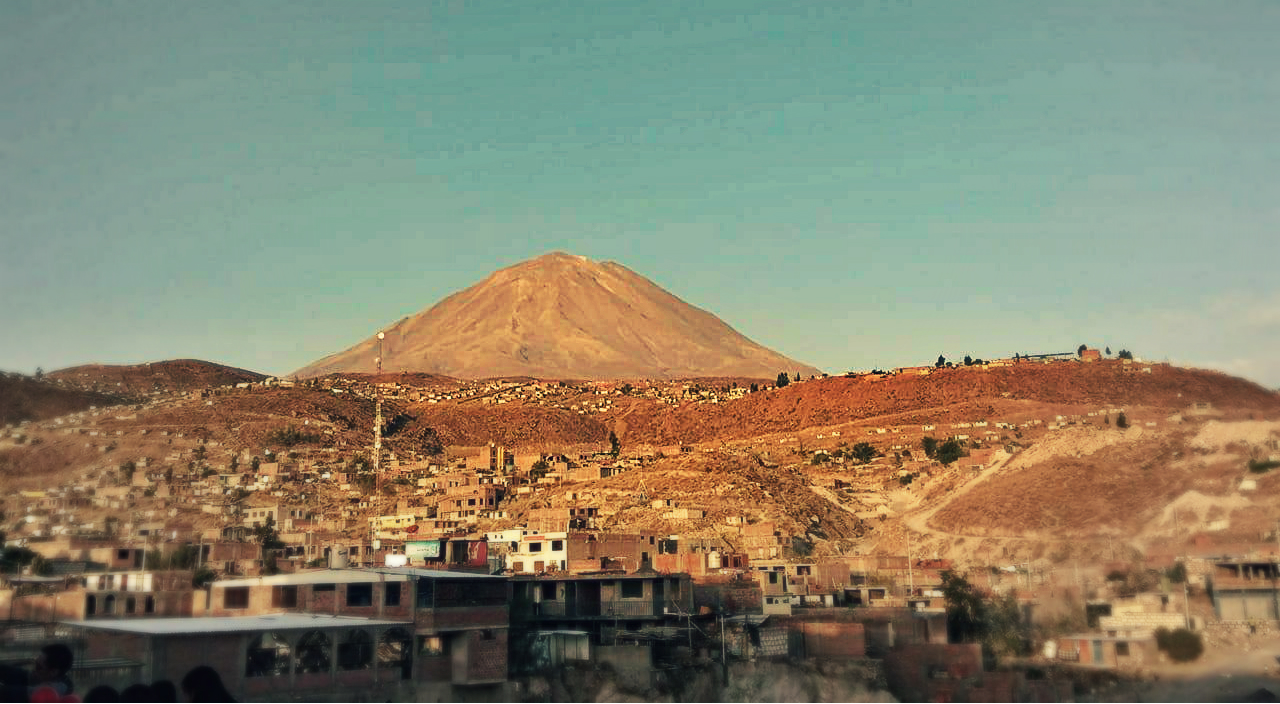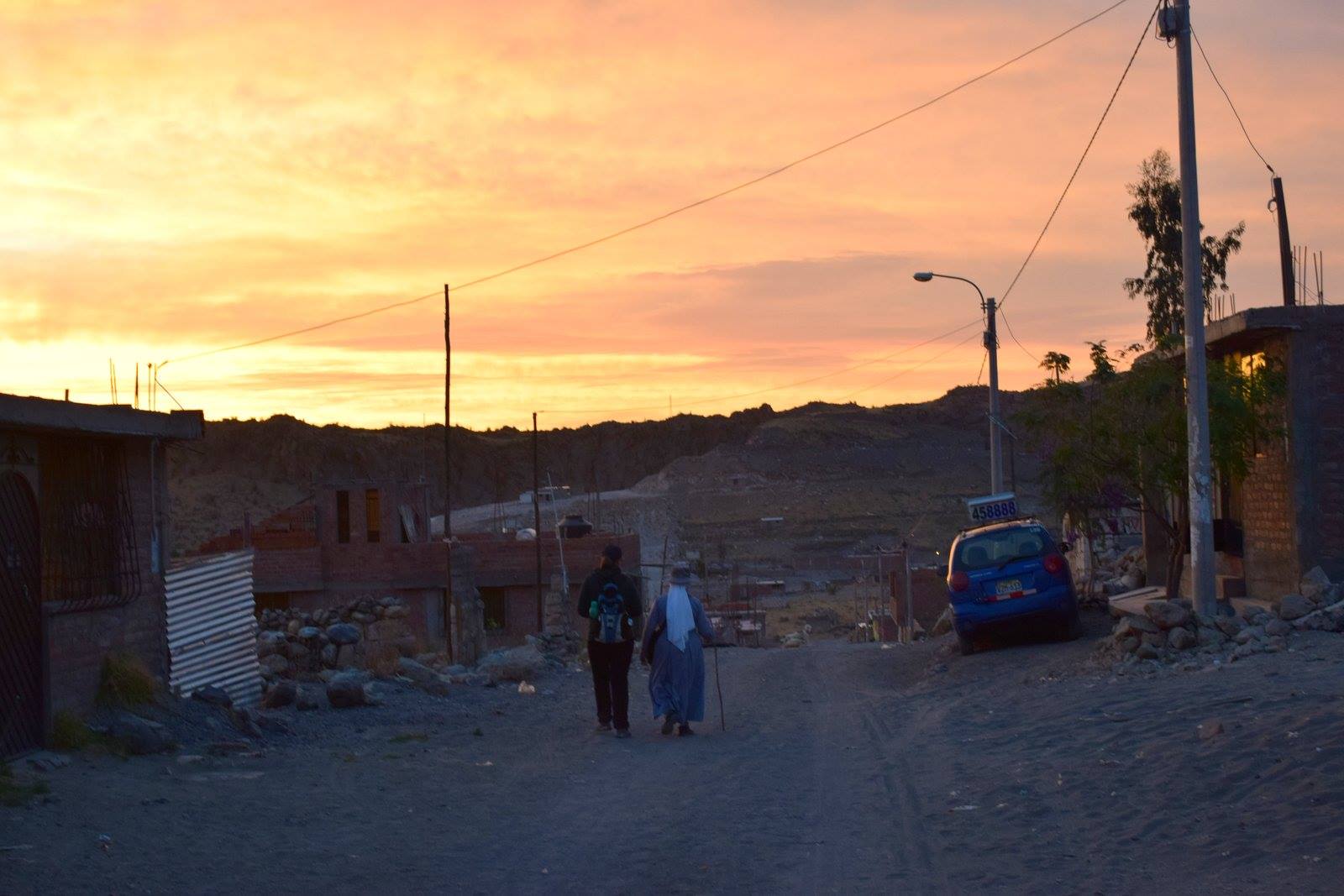We live in one of the most beautiful places on earth. Only add that in this place, lost in between the volcanoes Chachani and Misti, there live a humble people with whom now we share our lives.
Along our still early journey, many are the faces that are already imprinted in us. At times it is because the lack of humanity is so evident that, taken to the extreme, it leads to death. We have already heard many stories of violence not only in words, but also through the living witness of those who daily fight for change. Why is it that in this country, Peru, there are some of the highest levels of machismo in the world. In this essay by Manu Tessinari we can come to know this reality more deeply:
“Peru is a country of machismo, a lot of machismo.
In Peru, an adolescent girl may be beaten by her father if she is caught having sexual relations with her boyfriend. Here, an incarcerated woman does not have a right to conjugal visits. In the public health system, it is forbidden to give the “day after” pills to patients who were victims of rape.
Something more absurd? In Peru, if a woman is abandoned by her husband and does not accept divorce, the man can start a new life and register all the children from his new partner. The woman cannot. The law stipulates that the child of this woman legally belongs to the former husband (protected by the bonds of marriage) and a biological father needs to go through a lengthy and complicated legal process to register him.
Out of every 10 Peruvian women, six are victims of psychological violence and two of physical violence at the hands of their partners. About 16% of the people (men and women) believe that the fault is always with the woman, including 3.7% who believe that women DESERVE to be beaten and 3.8% DO NOT see a problem if the man forces relations on his partner.
People are great workers. According to the National Institute of Statistics and Information (INEI), 95.4% of Peruvian women have a job, mostly in the servant sector. On the average, a Peruvian female earns ONE THIRD less than a male doing the same work. Unfortunately, only 36% of females go to school to the end and only a little more than 16% end up concluding university studies. And all this in a country with 15,800,000 women, namely, 49.9% of the population.”
The lives of people going by our door do not leave us indifferent, and even though this is the reality, we bring them the joy of a Gospel which is not only ours, but a Gospel that fiercely demands to be taken into the world, taken to the extreme peripheries of it.
Do not be afraid to go meet these people, these situations. Do not be blocked by prejudice, by habits, by inflexible mental and pastoral attitudes, by the infamous “it has always been done this way.” But we can only go to the peripheries if we hold the Word of God in our hearts and walk with the Church, like St. Francis did. Otherwise, we are just proclaiming ourselves, and not the Word of God, and this is not good and does not benefit anyone. We are not the saviors of the world: The Lord saves it! (Pope Francis)
And here is where we feel called to live with them and among them. Here is where we cease to be ourselves in order to become living instruments at the service of Jesus Christ in Peru.
Neuza and Paula, CLM in Peru






con todo el respeto que se merecen, creo que basarse en un “essay” al que calificaria de malo y sobre todo desactualizado, es un error para describir la cultura peruana. Como ejemplo de la gran equivocacion que han pubicado… poner que el 95.4% de mujeres en el peru tienen trabajo sobre todo como servidumbre… y asi otros porcentages que estan fuera de la realidad del Peru hoy.
por favor, les pido con toda sinceridad, que solo despues de 20 anos de vivir en peru, y eso aun pudiera ser mas, escriban algo sobre la cultura peruana que tenga valor… Leevo muchos anos viviendo en un pais del continente africano y no me atrevo despues de tantos anos a escribir y dar juicios sobre la cultura con la que vivo dia a dia…
Por favor no se apresuren a escribir de las cosas que no conocen o que no saben solo basandose en “essay” fraudulento de una persona que se dedica a hacer y promover turismo….
Gracias
Buenos días Miguel
Gracias por tu comentario. Creo que las compañeras no pretendían hacer un juicio del Perú sino compartir algo que están encontrando o les llama la atención en su día a día. Quizás por el contexto concreto donde viven, quizás porque es algo que les sobrecoge de manera particular. Me consta el mucho amor que tienen al Perú y sus gentes, como lo tenemos nosotros tras muchos años sirviendo allá. Esperamos que no lleve a un mal entendido de un pueblo y una cultura maravillosa como la peruana. Aunque sí es bueno denunciar las situaciones de injusticia, ya sea laboral como social, en que la mujer se sigue viendo envuelta en Perú, y en la mayoría de países del mundo (sea en América, Europa, África, Asia u Oceanía). No es tanto la cultura sino las personas que las formamos las que no hacemos siempre las cosas bien. Que seamos capaces de poner todos nuestro granito de arena para dar a conocer las personas maravillosas que encontramos por el mundo y ayudar a mejorar lo que todavía no va bien.
Un saludo